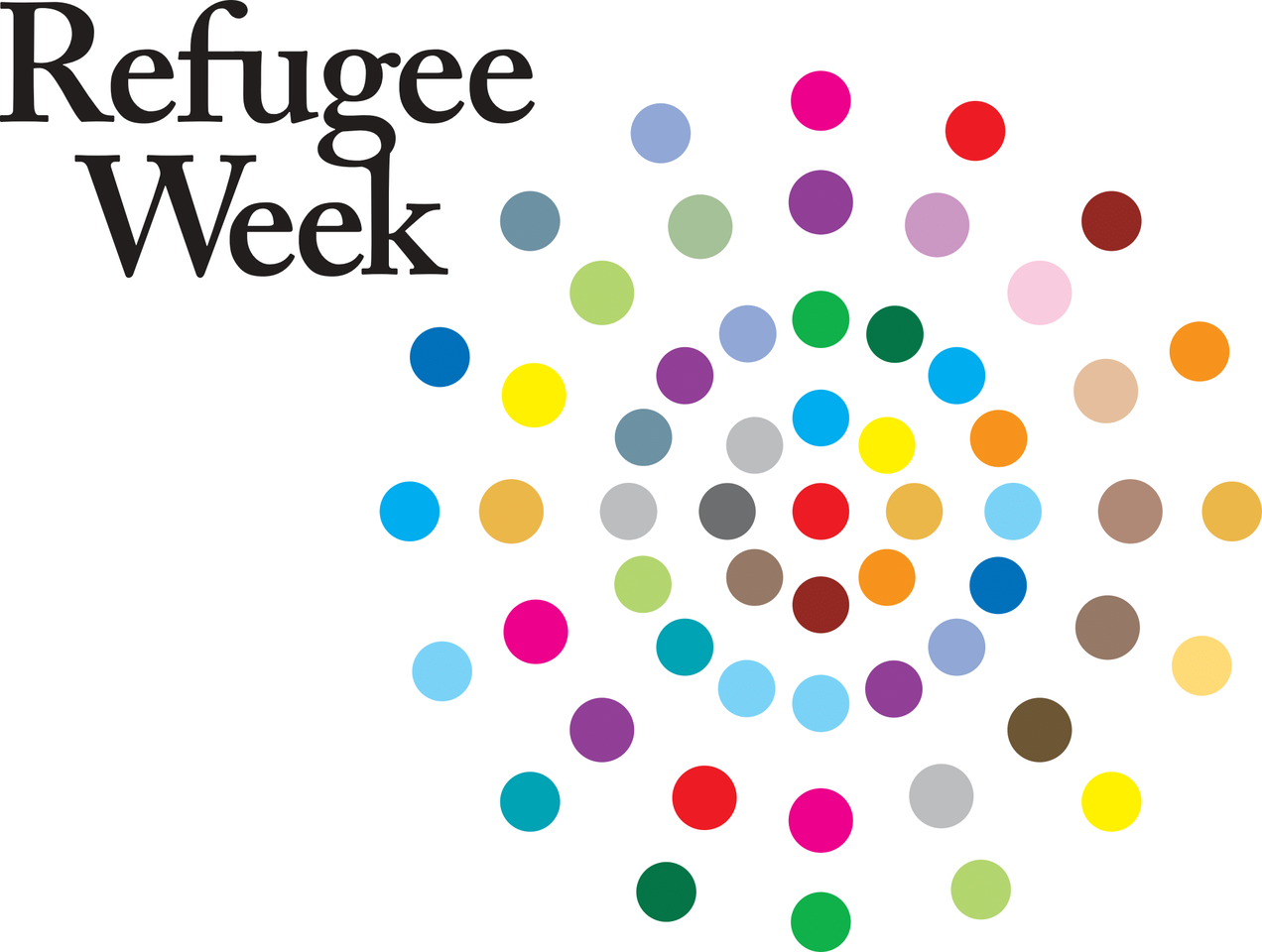Archive for June, 2019
Refugee Journalism
Posted by cathannabel in Refugees on June 21, 2019
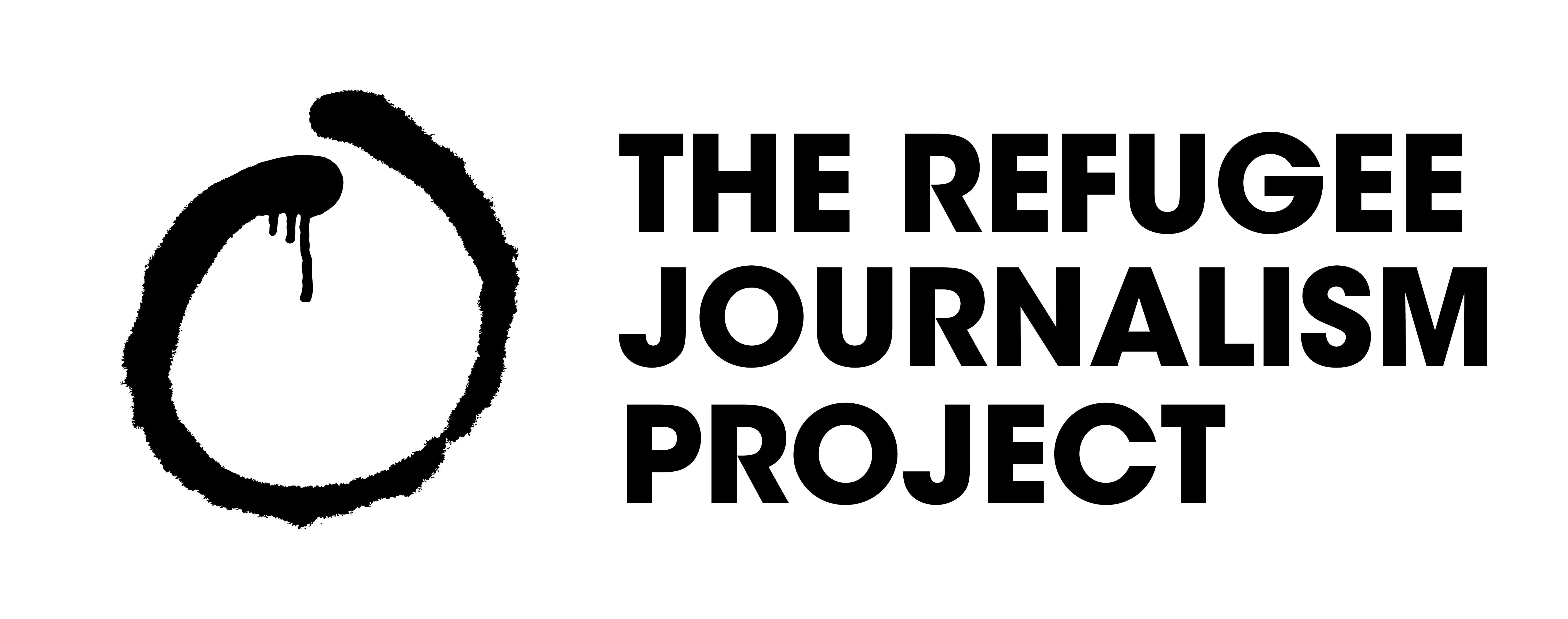
The Refugee Journalism Project supports refugee and exiled journalists to re-start their careers in the UK.
It was founded in 2016 and since 2018, the project has been based exclusively at London College of Communication, part of the University of the Arts London.
These journalists arrive in the UK with an impressive range of skills – many have been editors, correspondents and producers in their own countries – but they lack agency and face significant barriers when they attempt to continue their journalism in the UK. Participants are offered a range of workshops, mentoring and placements.
The project’s core aims are to:
Help prepare refugee journalists for work in the UK media industry;
Create opportunities for refugee journalists to publish their work and build a wider network;
Engage with new audiences, key policy and opinion-maker in order to debunk negative and institutional and public perceptions of refugees.
The Refugee Journalism Project currently works with a number of organisations to deliver its activities, including the Refugee Council, the University of Derby, The Guardian Foundation and the Google News Initiative.
http://migrantjournalism.org/about-us-2/
As part of this year’s Refugee Week, The Guardian Foundation invited participants in the project to write articles that reflect on the experiences, challenges and aspirations of displacement. Here are links to some of the articles.
In Conversation: Ziad Ghandour: BBC broadcasting journalist Ziad Ghandour was one of millions of people to escape their war-torn homeland in 2015. Ziad was forced to leave his English Literature master’s degree behind in Syria to search for a less volatile place to call home. Four months later, out of the back of a lorry, the UK gained an incredibly driven and intelligent young man.
In Conversation: Temesghen Debesai: Temesghen Debesai began his career in Eritrea, where he worked as a news anchor and co-founded the country’s first English television service in 1998. In 2006, he fled Eritrea and was granted refugee status in the UK. He joined the first cohort of the Refugee Journalism Project in 2016, and went on to work as a freelance journalist for the Thompson Reuters Foundation and BBC World Service. Temesghen is now a recipient of the Beyond Borders Bursary and is currently completing an MA in Television at the London College of Communication. This month he launched ERI Hope Media which focuses on Eritrean topics.
Researchers Building Hope for the Future, by Hasnaa Omar: Academics, MPs and those working in the NGO sector discuss the key findings of an in-depth study that seeks to help overcome the perceived tension between host communities and refugees.
Follow the project on Twitter, @refugeejourno

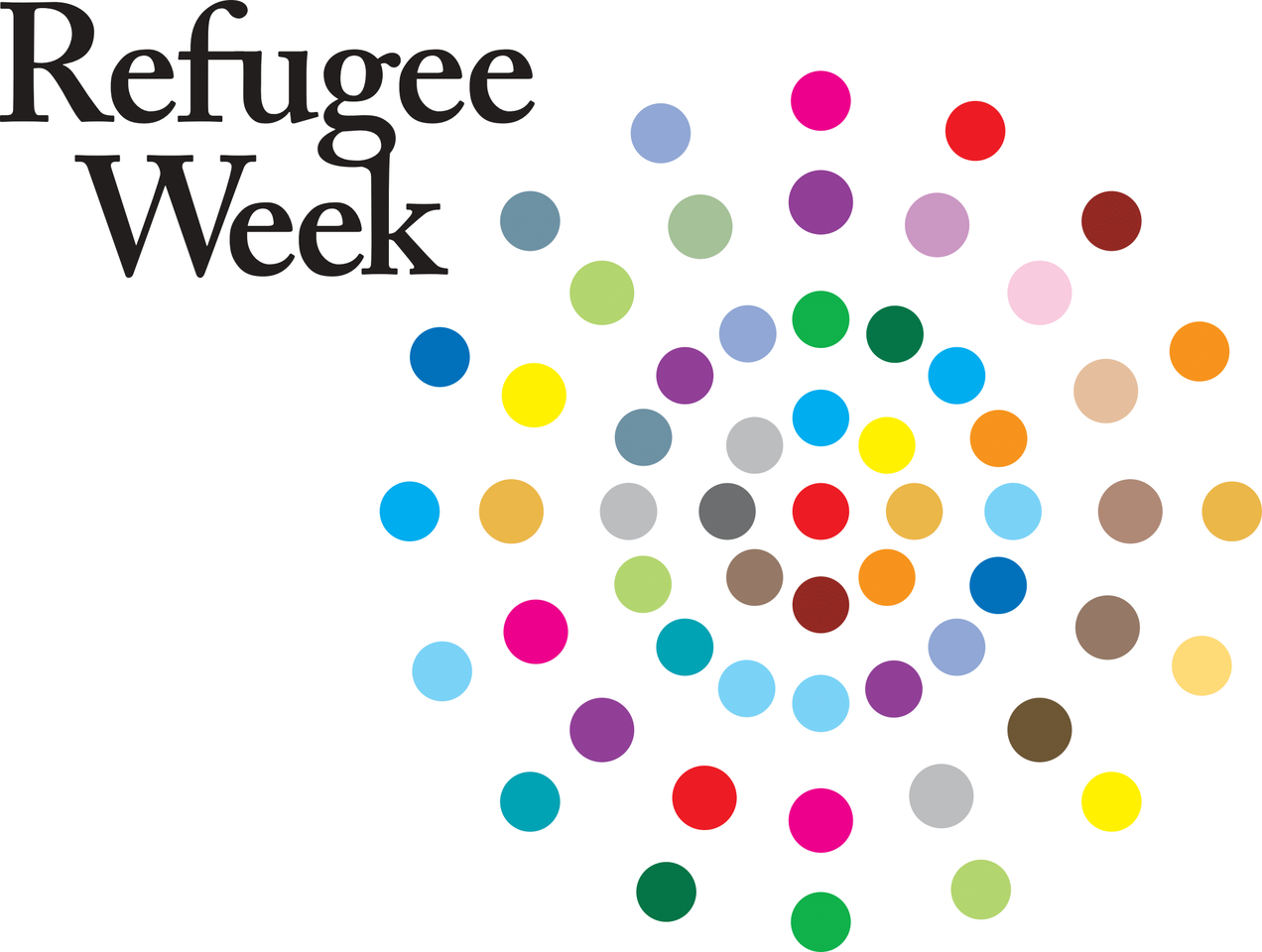
When will Australia get real about Refugees?
Posted by cathannabel in Refugees on June 19, 2019
Reblogging for Refugee Week an analysis of the Australian response to the refugee crisis, from blogger The Levine Lowdown.
It has been revealed today that the federal government will
be placing a higher priority on migrants from South America amid a humanitarian
crisis in Venezuela. The situation in Venezuela is deteriorating rapidly with
an estimated 3 million civilians feeling civil unrest under socialist president
Nicolas Maduro. The United Nations High Commission for Refugees labelled the
crisis, “the largest exodus in the recent history of Latin America.”
Currently, there is a no target or concrete number of
refugees which Australia will take in from South America; however, it is
progress. There have been small achievements in recent years in the protection
of refugees such as Mr Turnbull’s plan to increase the humanitarian intake from
13,750 to 18,750 in September 2016 and Mr Abbott one-off intake of 12,000
Syrian and Iraqi refugees in 2015. Yes, progress is occurring, but not at the
speed or rate required to provide real change in…
View original post 772 more words
Pregnant
Posted by cathannabel in Uncategorized on June 19, 2019
Reblogging for Refugee Week, a recent post from Phil Davis’s always passionate and thought-provoking A Darkened Room blog.
Sometimes it’s the little details that clarify the big picture. At Hope Projects we’ve just housed a homeless and destitute woman. She was pregnant. It wasn’t a mistake that she was homeless and destitute.
There’s a human instinct to treat pregnant women carefully. The mother-to-be is vulnerable. Her unborn child is exceptionally vulnerable. Lets stand up on buses so she can have a seat, or at least tut at others who don’t. It would take a heart of stone to do otherwise.
Even the Home office recognise this. Up to a point.
While refused asylum seekers are not entitled to any housing, financial support or right to work (see pretty much every previous blogpost…) Obviously, different rules apply to pregnant women. I mean, you can’t just literally throw a pregnant woman out on the street in a frightening, foriegn country to starve, can you? So the Home Office have a…
View original post 237 more words
Refugee ‘Situations and Emergencies’ – reports from the UNHCR
Posted by cathannabel in Refugees on June 18, 2019
The UNHCR categorises the various crisis points around the world as either situations or emergencies. Anyone imagining that a ‘situation’ is by definition manageable is naive. It’s just not (yet) (quite) an emergency. There’s the possibility of at least alleviating the problems, given a hefty dose of luck, and goodwill all round.
Here in Europe, we have a situation. The main issue is not numbers, which are low compared to countries in Africa, the Middle East and Latin America, many of which have significant numbers of internally displaced people as well as influxes of refugees from neighbouring countries. The problem is twofold – how to help those who are already here, and how to help those who are now or who will soon attempt the perilous Mediterranean crossing. For the first group, we need adequate reception and assistance services, especially for those with specific needs (lone children, survivors of violence, for example), we need access to fair and efficient asylum procedures, and support for family reunion and relocation. For the second group, ‘rescue-at-sea operations undertaken by all actors must remain a priority’.
This movement towards Europe continues to take a devastating toll on human life. Since the beginning of 2017, over 2,700 people are believed to have died or gone missing while crossing the Mediterranean Sea to reach Europe, with reports of many others perishing en route. These risks do not end once in Europe. Those moving onwards irregularly have reported numerous types of abuse, including being pushed back across borders.
https://www.unhcr.org/uk/europe-emergency.html
Venezuela too has a refugee situation. More than 3 million Venezuelans are now living abroad, the vast majority in neighbouring countries in South America. They are fleeing violence, insecurity, lack of food, medicines and essential services. They represent the largest exodus in the recent history of Latin America. Most refugees are families with children, pregnant women, the elderly, those with disabilities.
In Burundi, street protests led to outbreaks of violence after the President announced that he would seem a third term in office. Hundreds of thousands have fled to neighbouring countries. The violence has eased but the political situation remains unresolved, and Burundi faces economic decline, extreme food insecurity, and outbreaks of disease.
The Central African Republic has experienced unrest for many years, with increasing clashes between armed groups since May 2017. 700,000 people are displaced within the Republic, and many others have fled to Cameroon, Chad, DRC or the Republic of Congo.
But the above are merely ‘situations’. Then there are the emergencies.
Nigeria (and its neighbours, Chad, Cameroon and Niger) are facing terrible suffering due to the Boko Haram insurgency. Nearly 2.4 million are displaced in the Lake Chad basin. They are facing human rights violations, sexual and gender-based violence, forced recruitment, suicide bombings, conflict-induced food insecurity and severe malnutrition.
South Sudan has experienced brutal conflict since December 2013. Almost 4 million people have been driven from home, and more than 2.2 million have fled to neighbouring countries. The situation has quickly escalated into a full-blown humanitarian emergency, and displacement in the region is expected to rise until a political solution is found. Most refugees are women and children, and the rainy season brings new problems – floods, food shortages and disease.
In Iraq, more than 3 million have been internally displaced since 2014. More than 1.5 million have taken refuge in the Kurdistan region, where one in four is now a refugee or an internally displaced person.
“We had no choice other than to leave because it was not safe for our children. We left everything – our clothes, our furniture, even our food.”
Nafa Jihad, 40, father
The Democratic Republic of Congo seemed to have the chance of peace and stability when its long civil war ended in 2003. But sporadic fighting continued, and since 2016 there has been a new wave of violence. Human rights violations, mutilation, killings, sexual violence, arbitrary arrest and detention in inhumane conditions have led to 4.5 million being internally displaced, and over 826,000 seeking refuge in neighbouring countries. DRC is also hosting over half a million refugees from the same neighbours.
In Yemen, one of the poorest countries in the Middle East, the violence is worsening, and exacerbating poverty and insecurity. Millions are fleeing their homes to escape the conflict. Yemen is facing a humanitarian catastrophe. Without help, many more lives will be lost to violence, treatable illnesses or lack of food, water and shelter.
The Rohingya people, a stateless Muslim minority in Myanmar, have been fleeing violence in increasing numbers since 2017.
At the peak of the crisis, thousands were crossing into Bangladesh daily. Most walked for days through jungles and mountains, or braved dangerous sea voyages across the Bay of Bengal. They arrived exhausted, hungry and sick – in need of international protection and humanitarian assistance.
https://www.unhcr.org/uk/rohingya-emergency.html
Most of the refugees are woman and children – more than 40% under 12 – and many others are elderly.
And then there’s Syria. More than 5.6 million have fled since 2011, and millions more are internally displaced. 3.3 million Syrian refugees are in Turkey. In Lebanon, 70% of the refugees live below the poverty line – the figure is 93% in Jordan. Most refugees live in urban areas, not in the big refugee camps.
“Syria is the biggest humanitarian and refugee crisis of our time, a continuing cause of suffering for millions which should be garnering a groundswell of support around the world.”
Filippo Grandi, UNHCR High Commissioner
This catalogue of misery and despair around the world should put the challenges we in Western Europe face into perspective. For too many it simply encourages the building of literal or metaphorical walls to keep ‘them’ out. But most refugees aren’t clamouring at our borders, they’re fleeing where they can, into neighbouring countries that may be as poor and as unstable as their own, trying to survive however they can. People will continue to flee their homes if their homes are war zones, if they can’t feed their children, if they are persecuted because of their religion, their politics, their sexuality, if they face violence from state or insurgency. We would do the same.
These problems require collective solutions. We can’t, and mustn’t, retreat behind our borders and build bigger walls. We can’t continue to leave it to some of the poorest countries in the world to deal with the fall-out from Western interventions. It just won’t work.
The office of the United Nations High Commissioner for Refugees (UNHCR) was created in 1950, during the aftermath of the Second World War, to help millions of Europeans who had fled or lost their homes. We had three years to complete our work and then disband.
https://www.unhcr.org/uk/history-of-unhcr.html
They’re still here. 69 years later, there’s more to do than ever.

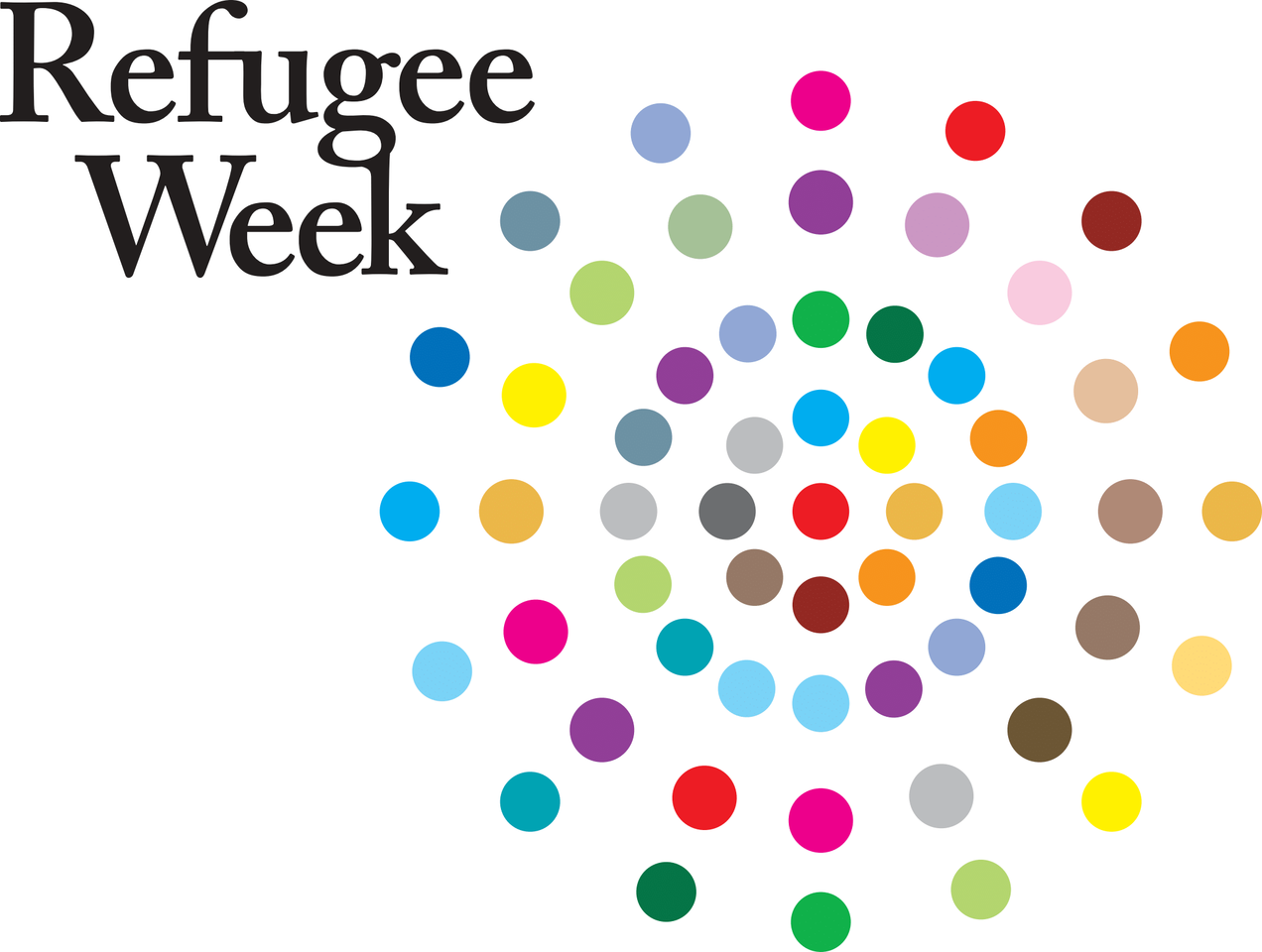
What is a refugee?
Posted by cathannabel in Refugees on June 17, 2019
Almost a quarter of British children do not know the meaning of the word “refugee”, according to a new survey, amid mounting evidence of a growth in negative sentiments and scepticism towards those seeking asylum in the UK.
Just over half of teachers (52 per cent) spoken to by the British Red Cross (BRC) said they had witnessed “anti-refugee” sentiments in their pupils and almost a quarter of children (24 per cent) did not know what a refugee was.
https://www.independent.co.uk/news/uk/refugee-asylum-uk-children-immigration-red-cross-survey-a8958936.html
The legal definition of the term “refugee” is set out at Article 1A(2) of the Refugee Convention, which defines a refugee as a person who:
Owing to well-founded fear of being persecuted for reasons of race, religion, nationality, membership of a particular social group or political opinion is outside the country of his nationality and is unable or owing to such fear, is unwilling to avail himself of the protection of that country; or who, not having a nationality and being outside the country of his former habitual residence is unable or, owing to such fear, unwilling to return to it.
The definition can be broken into constituent parts:
Possession of a fear that is well founded rather than fanciful
Of treatment that is so bad it amounts to being persecuted
For one of five reasons, referred to as ‘Convention reasons’: race, religion, nationality, membership of a particular social group or political opinion
Being outside one’s country
Being unable or unwilling to obtain protection in that country
All of the conditions need to be met for the person to be considered a refugee. For example, a person might have a well founded fear and be unable to get protection but if that person does not fear being persecuted for a Convention reason then the person is not a refugee in legal terms. Another person may meet all the other criteria for refugee status but be living in a refugee camp in their own country, in which case he or she is not a refugee and instead would often be referred to as an Internally Displaced Person.
https://www.freemovement.org.uk/what-is-the-legal-meaning-of-refugee/?utm_source=rss&utm_medium=rss&utm_campaign=what-is-the-legal-meaning-of-refugee&utm_source=Free+Movement&utm_campaign=66cbdac396-Asylum+updates&utm_medium=email&utm_term=0_792133aa40-66cbdac396-105090761&mc_cid=66cbdac396&mc_eid=2edcf25685
Of course, these definitions are the international ones used to determine legal status. They clearly exclude someone leaving their country voluntarily in order to better themselves economically, but they also may exclude people fleeing famine or poverty, or civil war unless some aspect of those situations targets the individual because of their ‘ race, religion, nationality, membership of a particular social group or political opinion.’
It’s therefore more complex than we might have imagined, and explains perhaps why so many applications for asylum fail. (There are of course myriad other reasons, notably a culture of disbelief.)

With all of these caveats, as Colin Yeo (immigration & asylum barrister, and editor of the Free Movement immigration law website) puts it, the Refugee Convention is ‘almost certainly the single law that has saved the most lives in history’. There’s lots more information about the Convention on the UNHCR website, which clarifies the wider role that they play in supporting people who have been ‘forcibly displaced’ (for example, they work with those who are internally displaced – i.e. they have fled their homes but are still in their own country).
For over half a century, UNHCR has helped millions of people to restart their lives. They include refugees, returnees, stateless people, the internally displaced and asylum-seekers. Our protection, shelter, health and education has been crucial, healing broken pasts and building brighter futures.
An unprecedented 68.5 million people around the world have been forced from home. Among them are nearly 25.4 million refugees, over half of whom are under the age of 18.
There are also an estimated 10 million stateless people who have been denied a nationality and access to basic rights such as education, healthcare, employment and freedom of movement.
https://www.unhcr.org/uk/who-we-help.html; https://www.unhcr.org/uk/figures-at-a-glance.html
Refugee Action, one of the foremost UK charities working with refugee and asylum seekers, has produced this useful list of FAQs:
Q. What is a refugee?
A. According to the UN Refugee Convention, the definition of a refugee is someone who…
‘Owing to a well-founded fear of being persecuted for reasons of race, religion, nationality, membership of a particular social group, or political opinion, is outside the country of his nationality, and is unable to or, owing to such fear, is unwilling to avail himself of the protection of that country’ (Article 1, 1951 Convention Relating to the Status of Refugees)
Q. What is an asylum seeker?
The definition of an asylum seeker is someone who has arrived in a country and asked for asylum. Until they receive a decision as to whether or not they are a refugee, they are known as an asylum seeker. In the UK, this means they do not have the same rights as a refugee or a British citizen would. For example, asylum seekers aren’t allowed to work.
The right to seek asylum is a legal right we all share. It isn’t illegal to seek asylum, because seeking asylum is a legal process. It also isn’t illegal to be refused asylum – it just means you haven’t been able to meet the very strict criteria to prove your need for protection as a refugee.
Q. Are there many refugees and asylum seekers in the UK?
A. No. According to the United Nations High Commissioner for Refugees (UNHCR), by the end of 2017 there were 121,837 refugees, 40,365 pending asylum cases and 97 stateless persons in the UK. That’s around one quarter of a percent (0.25%) of the UK’s total population.
Q. Is the number of asylum seekers and refugees in the UK increasing?
A. Asylum applications to the UK are relatively low – 26,350 in 2017. They increased slightly in 2015, when there were 32,733 applications for asylum, but this was still significantly lower than the peak of 84,000 applications back in 2002.
Q. Which countries help the most refugees?
A. 85% of the world’s refugees are hosted by developing countries. The least developed countries host one third of the total number of refugees globally. At the end of 2017, the country hosting the most refugees was Turkey –home to 3.5 million refugees. Other significant host countries for refugees were Pakistan (1.4 million), Uganda (1.2 million) and Lebanon (998,850).
Q. How many Syrian refugees are there and how many is the UK helping?
A. According to the UNHCR, by the end of 2017 there were 6.3 million Syrian refugees worldwide. Around 4.4 million of these refugees are currently being hosted by just two countries – Turkey and Lebanon. As well as providing aid to the refugee camps on Syria’s borders, the UK has pledged to resettle 20,000 Syrians by 2020 through the Vulnerable Persons Resettlement Scheme. By the end of 2017, 10,538 Syrian refugees had come to the UK through this scheme.
Q. Which countries in Europe have the most asylum seekers?
A. In 2017, Germany received the highest number of asylum applications (199,200), Italy the second most (128,800) and France third (98,800). The UK received 5% of the asylum applications lodged in the EU in 2017.
Q. Can asylum seekers work or claim benefits?
A. Asylum seekers are not allowed to claim benefits or work in the UK. If they are destitute and have no other means of supporting themselves, they can apply to receive asylum support. This is set at around £5.39 per day.
Q. What happens to someone when they get refugee status?
A. When a person is given refugee status, they have just 28 days to find accommodation and apply for mainstream benefits before they are evicted from asylum accommodation. Many refugees become homeless at this stage.
https://www.refugee-action.org.uk/about/facts-about-refugees/

You, me and those who came before – Refugee Week 2019
Posted by cathannabel in Refugees on June 16, 2019
Every year I try to post about some aspect of the situation faced by those who flee their homes due to violence, famine and persecution, each day during Refugee Week. I emphasise ‘try’ – this year I have been struggling with a bit of writers’ block: I have at least two pieces partially composed in my head but can I get them actually onto the page? Can I heck as like. Still. Whilst the commitment to honour Refugee Week in this way is entirely self-imposed, that doesn’t make it any easier to just say, soz, not in the mood right now, quite the opposite. So I will try.
And to begin, I want to remember some of the people who sum up this year’s theme, ‘You, me and those who came before’, which invites us to explore the lives of refugees – and those who have welcomed them – throughout the generations.
Refugee Week, since 2016, has been inextricably linked in our minds with the murder of Jo Cox, an outspoken advocate for refugees, for kindness and compassion. We remember her assertion that immigration has enhanced our communities, and that we have more in common than that which divides us.
She was murdered because of her values, because of what she said and what she represented. When I heard of her murder, I thought that this must change things, that the toxic rhetoric of the EU Referendum campaign must, surely, be at least reined back. I thought that those who use the language of hate carelessly would be horrified that this language had been turned into brutal action. I was sadly mistaken. All the more reason, however, to remind ourselves of what she said, and what she represented and to assert the values that we share, the things we have in common with each other.
Judith Kerr lived a long and happy life. But she so easily might not have done, had her parents not found a way to escape Nazi Germany (and subsequently France), just in time. Her autobiography is dedicated to “the one and a half million Jewish children who didn’t have my luck, and all the pictures they might have painted”. Her parents saved their children from the horrors that would have faced them had they remained – but both parents were, in her words, ‘destroyed’ by their exile. The children were young enough to adapt, to accept the changes in their lives and to embrace the new possibilities, even before they could understand what their fate might have otherwise been. The parents took on all of the fear, all of the horror, all of the vertigo of exile, and the weight of it all was too much for them. Like so many who have had a narrow escape, they could never shrug off the fear that the hatred they had fled from would catch up with them somehow, at some point, that the escape had been illusory.
Pia Klemp is a 35-year-old ship’s captain from Bonn, Germany, whose ship, the Iuventa, is believed to have saved 14,000 people in total, working closely with the Italian search and rescue services. Klemp herself skippered the boat on two missions, saving up to 3,800 people in distress in just one day. But the political climate has shifted in Italy, as it has elsewhere. Her ship has been seized, she’s been accused of cooperating with human traffickers, and she currently faces 20 years in prison in Italy. In her words, the Italian government’s approach stigmatises refugees, and criminalises solidarity with them.
She is unrepentant.
“There is no way I am going to prison for saving people in distress,” Klemp said. “It is the most ridiculous thing on so may different levels. And I will never accept anything else but acquittal.”
https://www.theguardian.com/world/2019/jun/15/captain-of-migrant-rescue-ship-says-italy-criminalising-solidarity
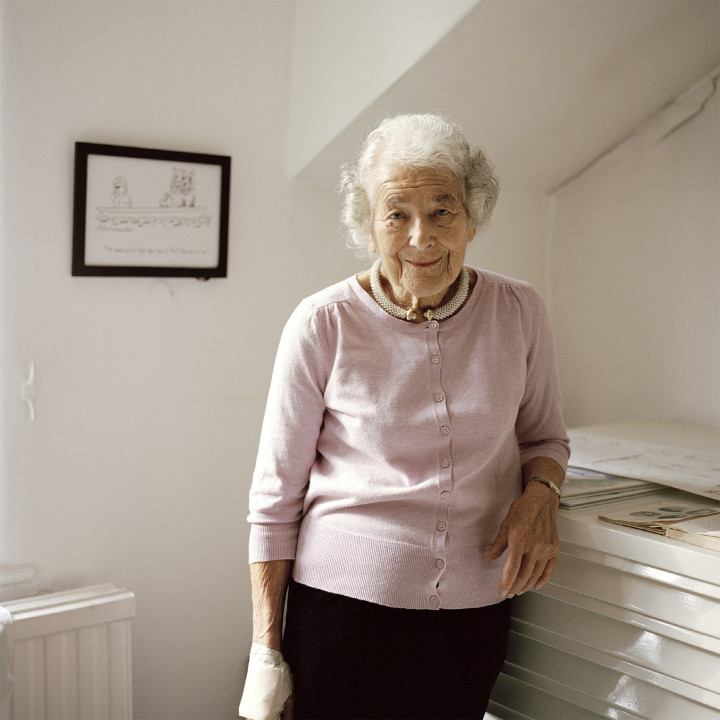

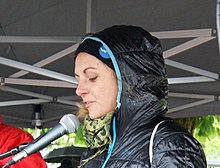
SONY DSC
You can find out more about what’s happening across the country during Refugee Week here. And if you’re lucky enough to be in Sheffield, don’t miss the Migration Matters Festival, with events and exhibitions happening every day at various venues, between now and Saturday 22 June.
